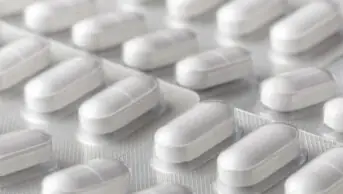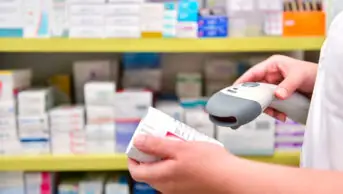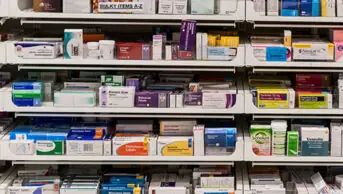
Shutterstock.com
Despite new legislation that requires greater transparency from generic drugs manufacturers and wholesalers, sharp price increases and supply shortages of some drugs could continue to leave pharmacy owners struggling to provide supplies to patients, a House of Commons committee has been told.
As part of a House of Commons Public Accounts Committee (PAC) inquiry into generic drug price increases, which heard evidence on 5 July 2018, Mark Burdon, regional representative for the North East and Cumbria at the Pharmaceutical Services Negotiating Committee (PSNC), told MPs that there was no guarantee that more drugs shortages and price spikes would not leave pharmacy owners struggling to provide supplies to patients.
A National Audit Office report published in June 2018 put the cost of the generic price rises to the NHS at £315m.
“If there was an easy solution, we would have found it,” he told MPs.
“We have made progress, but it is not easy because of the complexity and the number of stakeholders involved, including the NHS.”
The PSNC has been working with the government to streamline generic price concessions, following a large number of price increases in late 2017.
Also speaking to the PAC, Chris Wormald, permanent secretary at the Department of Health and Social Care (DHSC), defended the way the government had handled the concessionary price rises, explaining that the DHSC was first aware of price increases in mid 2017, but it was not clear what was causing the rises at the time.
Wormald added that the DHSC’s response to the shortages and high cost of generics — to increase concessionary prices — had worked. He said that this action taken by the government had ensured that medicines were available to patients by ensuring that pharmacies were fully funded for the suddenly higher prices. The problem was not that patients were caused harm by the shortages, but that the government “spent quite a lot of money” reimbursing the higher prices, he said.
Steve Oldfield, chief commercial officer at the DHSC, told MPs that once the department was aware of the problem, he met with bosses of the five major UK wholesalers and held calls with senior figures at the largest manufacturers.
He also said the DHSC “fundamentally changed” the way it collected information on generics supply and prices at the time by largely ignoring the wholesale sector and instead going directly to the manufacturers.
Wormald added that new legislation on generic drug transparency, which came into force in July 2018, will allow speedier identification of pricing and supply issues.
In written evidence to the PAC’s inquiry into price increases for generic medications, NHS Clinical Commissioners, which represents clinical commissioning groups, warned that patient safety could have been compromised by the spike in generic prices.
It said CCGs had cut treatment and services elsewhere to help balance the books, and it warned: “As well as this fiscal impact, for patients that should be in receipt of the ‘no cheaper stock obtainable’ items, a lack of availability of the required items has led to gaps in their care and potentially compromises the safety and quality of the treatment that they have been receiving.”
It added that the increase in concessionary prices was “a main contributing factor” to CCGs, ending 2017–2018 with a combined deficit of £250m.
In its written evidence to the inquiry, the PSNC said it was contacted more than 3,000 times in November 2017 by contractors reporting problems sourcing a number of generic medicines. In February 2017, it was contacted just 46 times.


